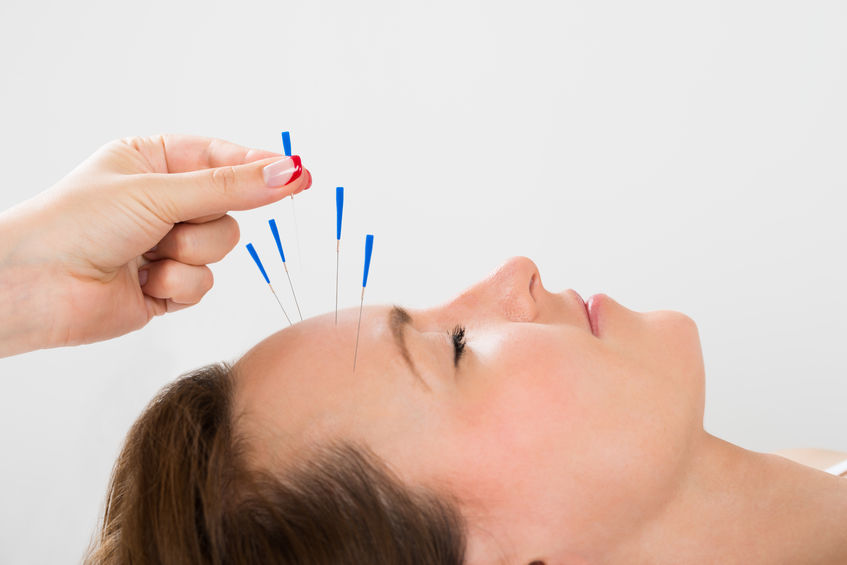 Acupuncture is an art of inserting very fine and thin metallic needles into the skin with a view to revitalizing energy flow through sensory nerves in the focus parts, usually known as ‘acupoints’. Acupuncture originated in ancient Asia, and is commonly used in Chinese medicine. The person doing the insertion is known as an acupuncturist. These professionals are usually highly trained, verified and certified by the health department. The needles are inserted into the skin on the areas of focus, as per the patient’s requirements, while they lie on a table. It is performed in a room that has a quiet and relaxed theme to allow the mind to relax, which is the primary reason for the session.
Acupuncture is an art of inserting very fine and thin metallic needles into the skin with a view to revitalizing energy flow through sensory nerves in the focus parts, usually known as ‘acupoints’. Acupuncture originated in ancient Asia, and is commonly used in Chinese medicine. The person doing the insertion is known as an acupuncturist. These professionals are usually highly trained, verified and certified by the health department. The needles are inserted into the skin on the areas of focus, as per the patient’s requirements, while they lie on a table. It is performed in a room that has a quiet and relaxed theme to allow the mind to relax, which is the primary reason for the session.
The Acupuncturist
An acupuncturist is a person that is highly trained and certified by the National Certification Commission for Acupuncture and Oriental Medicine (NCCAOM). Membership is not optional; it is a requirement for every practitioner. In addition to this certification, practitioners are required to have extra training inn acupuncture in line to most state requirements. This is because other massage and bodywork practitioners may not have full knowledge about acupuncture. Studies have shown that most acupuncture accidents occur with other massage and bodywork practitioners than with acupuncturists. Therefore, before you visit one, it is important that you first confirm their credentials so that you do not fall into the wrong hands.
‘Acupoints’
Some body parts have more sensation than others do. For instance, body parts with less flesh such as around nails and around muscles are known to produce more sensation than the parts with more flesh like around thighs. For as long as you are not hurt, a single tickling, jumping or throbbing sensation is okay. However, should these feelings exceed to pain, you should notify the acupuncturist so that they can change the angle of the needle or reduce the depth of the needle.
The places that hurt are different in most people. This is because different people have varying energy flow in different parts of their bodies. In addition, the areas of focus for acupuncture are different to distinct people. A highly trained acupuncturist will observe your response to the needles in different parts of your body and take the right action. Usually, one session lasts for 30 to 90 minutes, especially the first session, which involves discussing the needs of the patient. This time is likely to reduce in the subsequent sessions since the practitioner already knows your needs. The needles stay in place for 10 to 30 minutes.
Pain after Treatment
You might feel some pain after the treatment, but this should subside after a long time when you are done with the session. Should the pain continue, notify the acupuncturist so that they change their way of treatment on you. You will also feel energized and it is advisable that you do not engage in strenuous activities since this will annul the benefits of the treatment. What causes pain is the practitioner using high gauge needles or inserting them more deeply into the skin. Sometimes it is all about the needle insertion that makes the difference. Should you experience pain or bleeding, it is important that you try a different acupuncturist.
Benefits of Acupuncture
Acupuncture is mostly used to treat pain since it is known to enhance the production of hormone endorphins, which are natural painkillers in the body. This is also the same hormone responsible for the good feelings in the body. Acupuncture is also clinically known to treat some conditions such as migraines and headaches, dental pain, labor pains, arthritis, menstrual cramps and PMS, neck pains and anxiety and depression.
Finding a qualified and experienced acupuncturist is not hard, you just Google them online or you could still visit the National Certification Commission for Acupuncture and Oriental Medicine website (www.nccaom.org) to check for their rating and reviews. Here, you can rest assured that you will not find any crook practitioners since the body certifies and clears them for this kind of delicate practice. You do not want to take chances with your body.
Underqualified practitioners can cause injuries in your body through bleeding, sores or excessive pains since they do not have the knowledge of how far or how to insert the needles. Studies show that most of the injuries occur from using high gauge needles or inserting them so deeply into the skin. It is important to note insurance providers do not cover most acupuncture treatments, not unless specialists such as chiropractors or osteopaths have recommended the treatment.

